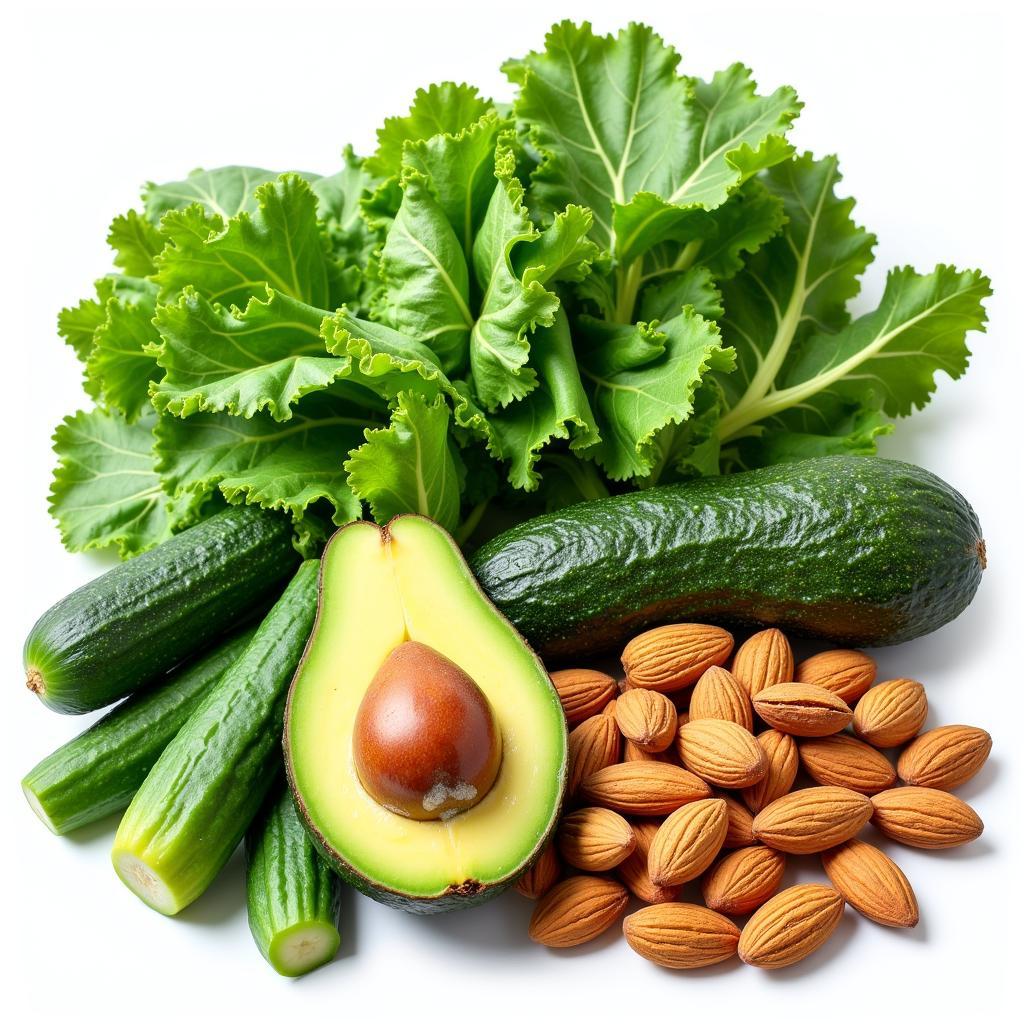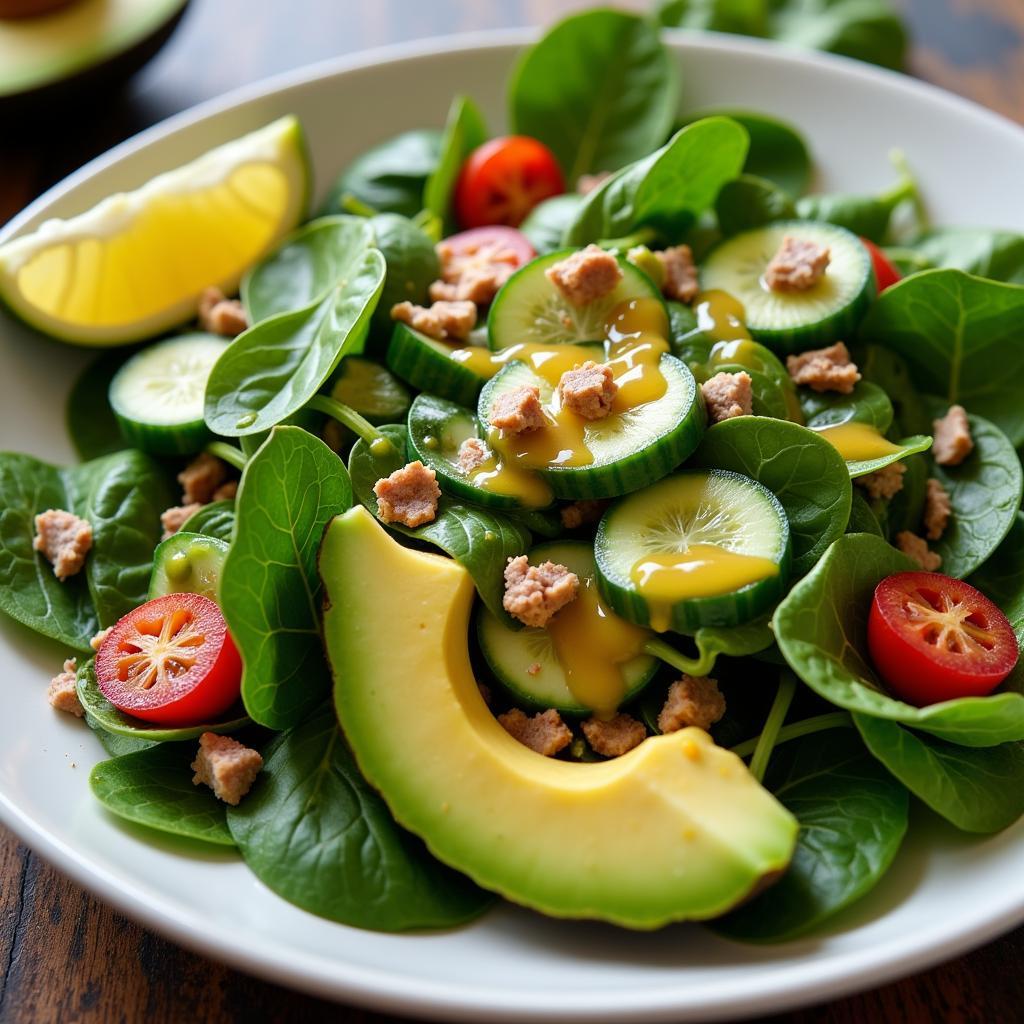Apple cider vinegar and alkaline foods are often discussed in the context of health and well-being. But do they work synergistically, and what benefits can you expect from incorporating them into your diet? This article explores the relationship between alkaline foods and apple cider vinegar, examining the potential benefits and providing practical tips for incorporating them into your daily routine.
Understanding Alkaline Foods
Alkaline foods are believed to help balance the body’s pH levels. Our bodies naturally maintain a slightly alkaline pH, and proponents of alkaline diets suggest that consuming alkaline-rich foods can support this balance. These foods are generally rich in fruits, vegetables, and certain nuts and seeds. However, it’s important to note that the body has complex mechanisms for regulating pH, and the effect of diet on overall pH is still a subject of scientific debate. Focusing on consuming a variety of nutrient-dense foods is key, regardless of their perceived alkalinity.
Foods considered alkaline include leafy greens, cruciferous vegetables like broccoli and cauliflower, cucumbers, avocados, and almonds. These foods are packed with vitamins, minerals, and antioxidants, which contribute to overall health and well-being.
 Examples of Alkaline Foods
Examples of Alkaline Foods
The Power of Apple Cider Vinegar
Apple cider vinegar, made from fermented apples, has been used for centuries for its potential health benefits. It’s a rich source of acetic acid, which some studies suggest may offer benefits like improved blood sugar control, weight management support, and reduced cholesterol levels. While more research is needed to confirm these benefits, apple cider vinegar has become a popular natural remedy. It’s important to consume apple cider vinegar diluted with water to protect tooth enamel and avoid digestive discomfort.
Combining Alkaline Foods and Apple Cider Vinegar: A Synergistic Approach?
While there’s no definitive scientific evidence that combining alkaline foods and apple cider vinegar creates a unique synergistic effect, incorporating both into a healthy diet can offer several advantages. Alkaline foods provide essential nutrients and antioxidants, while apple cider vinegar may offer additional benefits like improved digestion and blood sugar regulation. Together, they can contribute to a more balanced and nutritious dietary approach.
 Apple Cider Vinegar Dressing on Alkaline Salad
Apple Cider Vinegar Dressing on Alkaline Salad
How to Incorporate Alkaline Foods and Apple Cider Vinegar into Your Diet
Adding alkaline foods and apple cider vinegar to your diet is simple. Start by increasing your intake of fruits and vegetables, particularly leafy greens and cruciferous vegetables. You can also add a tablespoon of apple cider vinegar to a glass of water and drink it before meals. Another option is to use apple cider vinegar in salad dressings or marinades.
Is Apple Cider Vinegar Alkaline?
Interestingly, apple cider vinegar, despite its acidic taste, is considered an alkaline-forming food once metabolized in the body. This means that while it’s acidic in its natural state, it can contribute to a more alkaline environment within the body after digestion.
Does Apple Cider Vinegar Neutralize Acidic Foods?
There’s no scientific evidence suggesting that apple cider vinegar neutralizes acidic foods in the digestive system. The body’s pH regulation mechanisms are far more complex.
 Drinking Apple Cider Vinegar Water
Drinking Apple Cider Vinegar Water
What are the best alkaline foods to eat with apple cider vinegar?
Leafy greens, cucumbers, and avocados pair well with apple cider vinegar in salads and other dishes.
Can I drink apple cider vinegar every day?
While generally safe, consuming apple cider vinegar daily should be done in moderation and diluted with water to avoid potential side effects.
Conclusion
Incorporating both alkaline foods and apple cider vinegar into a balanced diet rich in whole foods can contribute to overall health and well-being. While more research is needed to fully understand the potential benefits of each, focusing on nutrient-dense foods and healthy lifestyle choices is always a positive step. Remember to consult with a healthcare professional or registered dietitian before making significant dietary changes, especially if you have any underlying health conditions. Explore the vibrant world of alkaline foods and apple cider vinegar and see how they can contribute to a healthier you.
FAQs
- What are some examples of alkaline foods? Leafy greens, cruciferous vegetables, cucumbers, avocados, and almonds are some examples.
- How should I consume apple cider vinegar? Dilute apple cider vinegar with water before drinking to protect tooth enamel.
- Can apple cider vinegar cure diseases? No, apple cider vinegar is not a cure for any disease, but it may offer certain health benefits.
- Is an alkaline diet suitable for everyone? Consult with a healthcare professional before making significant dietary changes.
- What are the potential side effects of apple cider vinegar? Some potential side effects include digestive discomfort and tooth enamel erosion if consumed undiluted.
- Can I use apple cider vinegar topically? Yes, apple cider vinegar is often used topically for skin and hair care.
- How can I find more information about Alkaline Foods Apple Cider Vinegar? Further research can be conducted online and through consultation with healthcare professionals.
Need assistance? Contact us at Phone: 02437655121, Email: [email protected] or visit us at 3PGH+8R9, ĐT70A, thôn Trung, Bắc Từ Liêm, Hà Nội, Việt Nam. We have a 24/7 customer service team.